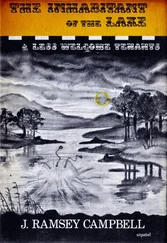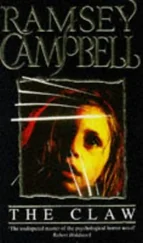Corbett’s only answer was an ironic smile. “I know you, Kate. You’ll pull your own weight.”
“But how?”
“There’ll be something. He’s thinking of selling his place. He needs to put it in shape. Maybe you could help him.”
“Yes,” she murmured. “I can do that, all right.” She’d worked her way through high school and most of college as part of a cleaning crew for a real estate company. She didn’t like the work. But she knew how to do it.
Charlie, bored with looking out the window, ran to her, tugged her hand. “Come on,” he said. “Let’s go home.”
Kate bit her lip. How did you tell a child that this might be the last time he’d see home? That you were fugitives now, and that perhaps you could never come back?
But she stood, forcing herself to smile. She gave Charlie’s hand a confident squeeze.
“Charlie,” she said, injecting all the cheer she could into her voice, “remember that trip I told you we might take?”
THE WOMAN AND KID were arriving that night. Hawkshaw was no happier than before about the prospect; he felt as evil-tempered as a snake shedding its skin.
Still, he was nagged by the alien thought that he should clean house. This was such a distasteful impulse that he promptly quelled it
He did, however, force himself to put sheets on the twin beds in the guest room. At least, he supposed it was a guest room. Up until now he’d been lucky enough to avoid having guests.
Outside, rain poured down, hammering on the roof and streaming down the windows. The weather was too vile to fish or kayak, so restless, he stayed inside and did push-ups.
He told himself he would do a hundred, then make himself examine the file of material Corbett had faxed him about Katherine Kanaday.
But after a hundred push-ups, he still felt too restless, so he started a second hundred. After three hundred, he gave up. He lay on the floor for a moment. He swore, muffled, into the braided rug.
Then he rose, snagged a beer from the refrigerator and picked up the Kanaday file. He wore only a pair of denim cutoffs; he didn’t bother much about dressing these days, and he didn’t intend to.
He swung his long body down on the couch, kicked a couple of boating magazines out of his way. He plumped up the ancient sofa pillow, settled back and opened the file Corbett had faxed.
There were a couple of fuzzy pictures of the woman and kid. The kid was cute. In his heart of hearts, Hawkshaw liked kids; he considered them a sort of separate species and thought it a damn shame they grew up to be human beings.
The woman he dismissed as nothing special. Too thin, her hair too long and curly. Corbett said her hair was reddish. Hawkshaw had never been attracted to redheads. Carrot-tops, he thought dismissively.
He began to read about her. She was thirty-two years old, had a college degree, and had worked as assistant manager in a new-and-used bookshop. Had been married to a professor of computer science at the local college.
Ho-hum, thought Hawkshaw, looking over her background: a quiet life, boring and bookish. Nothing out of the ordinary.
Until a year and a half ago. Then her husband had suddenly and unexpectedly died of a brain tumor. Ten days later, the stalking began. An odd sequence—was it a coincidence?
Hawkshaw stretched. He scratched his bare chest and took a sip of beer. He read on.
Corbett had written,
On the morning of February 11, Kanaday opened front door of her apartment to get paper. On doorstep found single white rose wrapped in cellophane. Beneath it, note, unsigned. Note laser-printed on white paper. See attached.
Hawkshaw picked up a separate stack of papers clipped together. He read the top one, which was labeled, in Corbett’s firm handwriting, “First Note.”
I THINK OF NOTHING BUT YOU. I WANT YOU WITH ALL MY BEING. IF I CAN’T HAVE YOU, I DON’T KNOW WHAT I WILL DO. GIVE ME A SIGN THAT I CAN COME TO YOU. WEAR THIS ROSE ON YOUR COAT TODAY.
Hmm, Hawkshaw thought, cocking an eyebrow. Mildly interesting. Not overtly threatening, just psycho enough to make a person nervous.
He went back to Corbett’s account. The Kanaday woman said she at first thought the incident was only a “sick joke.” She’d thrown away the rose and thought no more of it. Until the second rose appeared.
Again the nameless admirer asked her to wear the flower. Again she threw it away. Then the phone calls started. A man’s voice, low, unrecognizable, breathless, hungry.
Wherever she went, he seemed to know. He told her what she had done, whom she had seen, to whom she had talked, what she wore. Somehow he seemed to watch her all the time.
The stalker’s threats were always veiled, never explicit. Small things appeared—like the roses, the notes. Others disappeared—like the dog’s leash or a pair of muddy tennis shoes left outside beside the door mat.
And the calls, wrote Corbett, never stopped. It didn’t matter how often the Kanaday woman changed her number; the stalker always found out the new one. Then, angry that she’d tried to elude him, he would plague her even more unmercifully. At last, when she no longer answered the phone at home, he began to harass her at the bookstore, and he did so until she had to quit her job.
Hawkshaw frowned at the closing paragraphs.
Kanaday had just started a new job at the Columbia Mall bookstore. Near closing time, she received a call from the stalker.
He claimed at that moment he could see her son. He described the boy’s clothing and play activity. He said, “I know why you don’t come to me. It’s because of the boy. You feel guilty because you have to pretend to want him more than you want me. I’ll take care of that, and then I’ll come for you. And then you’ll be mine forever.”
Hawkshaw swore under his breath. He closed the folder and tossed it on the floor. He stood, restless again. He walked to the window. The view was still obscured by rain.
Stalkers, he thought with loathing. He stroked the scar along his forearm, then turned and glowered at the file.
“Find the bastard, Corbett,” he said between his teeth. “I’m not up to these games anymore.”
He drained the beer and glanced at the clock, calculating the hours of freedom he had left. It was a silly clock, shaped like a cat, whose tail was the wagging pendulum. The phone rang. The back of Hawkshaw’s neck prickled in apprehension.
His phone seldom rang these days. Somehow he knew this call meant more bad luck.
THE MIDNIGHT SKY WAS BLACK and starless. The plane taxied down the wet tarmac, came to a stop before the small air terminal.
Key West, said illuminated letters that rose from the terminal’s roof. Their pastel color was haloed by mist.
Key West, thought Kate. Florida. We’re really here. Corbett had told her their destination only when he had taken her inside the terminal back home.
Now she and Charlie were exiles, strangers in a strange land. Everything felt unreal—how could it seem otherwise? They had come to the Florida Keys to live with a man she had never met, had never even spoken to.
A wave of anxiety surged through her, but she ignored it. Keeping her head high, she carried her sleeping son down the stairs of the plane.
Charlie was exhausted. They had been traveling since dawn, and their flight had been delayed in Miami for five hours because of the torrential rains.
Here in Key West the drizzle was light. The moon was masked by clouds. Beyond the airport’s chain-link fence, Kate saw palm trees mistily gilded by the parking lot lights. The air was sultry and pungent.
Charlie stirred against her shoulder. “What’s that smell?” he asked crankily.
“It’s the ocean,” she told him, although the scent was as new to her as it was to him.
Читать дальше












